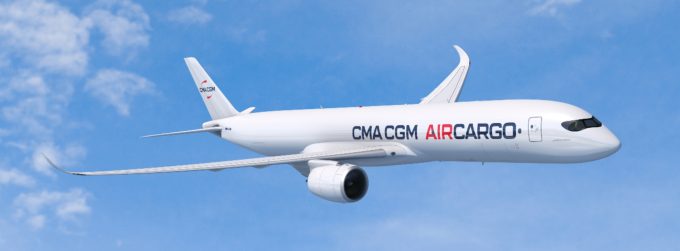Container spot rates have peaked as all major trades see prices fall
There was more evidence in this week’s container port freight markets that peak prices on ...
TFII: SOLID AS USUALMAERSK: WEAKENINGF: FALLING OFF A CLIFFAAPL: 'BOTTLENECK IN MAINLAND CHINA'AAPL: CHINA TRENDSDHL: GROWTH CAPEXR: ANOTHER SOLID DELIVERYMFT: HERE COMES THE FALLDSV: LOOK AT SCHENKER PERFORMANCEUPS: A WAVE OF DOWNGRADES DSV: BARGAIN BINKNX: EARNINGS OUTODFL: RISING AND FALLING AND THEN RISING
TFII: SOLID AS USUALMAERSK: WEAKENINGF: FALLING OFF A CLIFFAAPL: 'BOTTLENECK IN MAINLAND CHINA'AAPL: CHINA TRENDSDHL: GROWTH CAPEXR: ANOTHER SOLID DELIVERYMFT: HERE COMES THE FALLDSV: LOOK AT SCHENKER PERFORMANCEUPS: A WAVE OF DOWNGRADES DSV: BARGAIN BINKNX: EARNINGS OUTODFL: RISING AND FALLING AND THEN RISING

With third-quarter revenues of $15.32bn, up some 90% on a year earlier, it will come as little surprise that CMA CGM has decided to buy aircraft (along with a rail operator and investment in several port terminals).
The decision to buy four A350 freighters, which will not be delivered until after 2025, comes alongside the decision to create a ‘real’ airline and register the aircraft in France.
Currently, CMA CGM’s four A330-200Fs are operated by Air Belgium, but the shipping giant is applying for a French aircraft operating certificate, and has hired some 50 pilots “who will join … during the coming weeks”.
The line also announced in September an order for two B777 freighters, which will arrive in spring next year.
It’s an interesting choice, and will lead to speculation as to whether CMA CGM will ultimately offer both aircraft. The A350 freighter, not yet launched, with CMA’s order, just the second after Air Lease Corporation’s pledge to buy seven, seen as a direct competitor to the 777F.
But the A350F could have 11% more capacity than the 777F – and the fewer the aircraft types in a fleet, the better the economies of scale.
The move to become an airline could also lead to questions over whether CMA CGM will continue to use French cargo sales specialist ECS to fill its aircraft – or whether it will become its subsidiary Ceva’s in-house airline, much like Panalpina had its own controlled network.
According to one senior air cargo source, some forwarders and other air freight capacity buyers have been reluctant to use the carrier, citing its links to Ceva, as well as ECS. The close link between the air cargo arm and Ceva was highlighted in CMA CGM’s press release, which noted alongside its aircraft order that Ceva had acquired Cargex, a Colombian perishables specialist.
The now hugely wealthy shipping lines are making significant inroads into multimodal transport, as well as freight forwarding.
Maersk, which is reportedly eyeing a large forwarder purchase in Asia, and has also not renewed contracts with many freight forwarders as it moves into the space, is also buying aircraft – it said at the start of the month it was buying two 777Fs and leasing three 767-300Fs for its Star Air subsidiary.
CMA CGM, meanwhile, said the A350Fs would enable it to “reinforce its long-haul offer, to better meet the needs of its customers and their markets”.
And while forwarders have expressed reservations about using CMA CGM’s airline, the airline industry is watching with interest.
“It’s an interesting move from Maersk and CMA CGM,” Etihad’s head of cargo, Martin Drew, told The Loadstar this month. “They have seen what’s going on and want a piece of it. It’ll be interesting to see how it plays out.
“CMA is a huge shipping line, with Ceva and an airline – they’ve got it all covered. But they must be mindful of neutrality.
“It’s not a surprising move. But competition is healthy, and gives us an opportunity to do more with these guys. Ceva is a major customer.”
Geographically, Etihad is close to CMA CGM growth: the shipping line has signed a 35-year concession agreement for the new container terminal at Khalifa Port in Abu Dhabi, which Etihad believes could boost its sea-air operations.
“It’s a major development. Other shipping lines are adding activity into Kalifa., so we are looking at sea/air products, it’s an area we are looking to develop,” said Mr Drew.
CMA CGM Air Cargo last month shelved its Dubai World Central service which had sea-air potential, because, according to one source, it could generate better revenues with its aircraft elsewhere.
Comment on this article